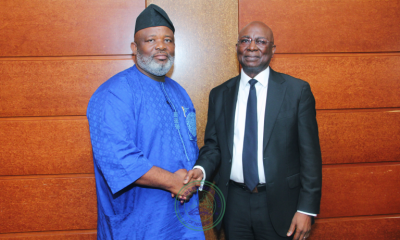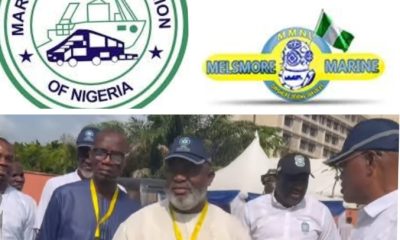By Ezurike Ugochukwu
Nigeria’s maritime sector is on the cusp of a revolution, thanks to the Nigerian Navy’s plans to incorporate cutting-edge technology, including drones, to tackle maritime crime.
To this end, Rear Admiral Idi Abbas, the Chief of Naval Staff-designate, has pledged to integrate advanced technology into naval operations, citing the potential of drone surveillance to curb maritime crimes and improve efficiency.
Submission to the Senate
Abbas made the revelation on Wednesday while responding to questions during his screening by the Senate, he said technology, particularly drone surveillance, can be used to curb maritime crimes and improve the efficiency of the force.
“We will incorporate more technology, including the use of drones, to tackle maritime crime.
“A lot of resources are currently wasted fueling boats to reach remote areas. Technology will help us respond faster and more effectively,” he disclosed.
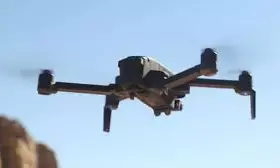 Drones to The Rescue
Drones to The RescueAbbas’ vision is clear: drones will be used to monitor and plug leakages, particularly in hard-to-reach areas where oil theft is prevalent. This move is expected to significantly reduce the economic losses incurred by Nigeria due to oil theft. The use of drones will also enable the Navy to respond faster and more effectively to maritime crimes, freeing up resources currently wasted on fueling boats to reach remote areas. Additionally, it will minimize opportunities for connivance and fraudulent activities by officers on duty, enhancing the overall integrity of naval operations.
A Coast Guard Not Needed

The Chief of Naval Staff-designate has also put to rest calls for the establishment of a separate coast guard, arguing that it would duplicate efforts and waste resources. Instead, Abbas advocates for boosting naval operations, leveraging the Nigerian Navy’s existing capabilities to tackle maritime security challenges.
Steve Oronsaye Report: A Call For Reform
The Steve Oronsaye report, which recommended the merger or scrapping of over 100 government agencies, including the National Inland Waterways Authority (NIWA), has been touted as a solution to Nigeria’s maritime sector challenges. The report aims to address duplication of duties and promote efficiency in government agencies. The report disclosed then that the government would be saving over N862 billion between 2012 and 2015.
However, its implementation has been slow, with concerns about job losses and disruption to essential services.
Synergy and Collaboration
Abbas emphasizes the need for greater synergy among the armed forces and other security agencies to tackle maritime crime. This collaborative approach will enable the Navy to share intelligence, resources, and expertise, ultimately strengthening Nigeria’s maritime security.
Improving the Nigerian Maritime Sector
The incorporation of drones and advanced technology into naval operations has the potential to transform Nigeria’s maritime sector. With improved surveillance and response capabilities, the Navy can effectively tackle maritime crimes, protect Nigeria’s territorial waters, and boost economic growth.
Embracing Technology for National Progress

The Nigerian naval chief’s vision for leveraging technology to enhance maritime security is a step in the right direction. Embracing cutting-edge technologies can help address pressing national issues, including terrorism, insecurity, and electoral fraud/INEC malfeasances, ultimately giving Nigeria a fair and firm direction. It’s time for those in authority to accept this reality as a game changer to move the country forward.

 Crime1 year ago
Crime1 year ago
 Business5 years ago
Business5 years ago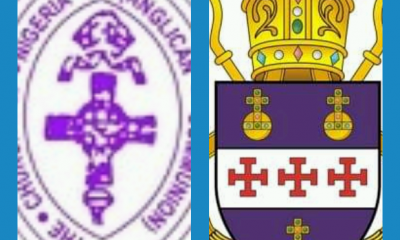
 News6 years ago
News6 years ago
 Crime2 years ago
Crime2 years ago
 News1 year ago
News1 year ago
 News6 years ago
News6 years ago
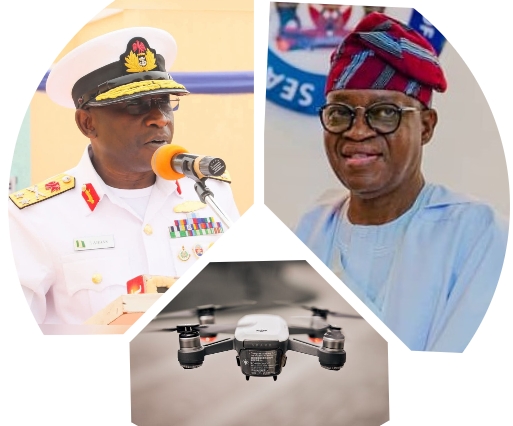
 Drones to The Rescue
Drones to The Rescue The Chief of Naval Staff-designate has also put to rest calls for the establishment of a separate coast guard, arguing that it would duplicate efforts and waste resources. Instead, Abbas advocates for boosting naval operations, leveraging the Nigerian Navy’s existing capabilities to tackle maritime security challenges.
The Chief of Naval Staff-designate has also put to rest calls for the establishment of a separate coast guard, arguing that it would duplicate efforts and waste resources. Instead, Abbas advocates for boosting naval operations, leveraging the Nigerian Navy’s existing capabilities to tackle maritime security challenges.





